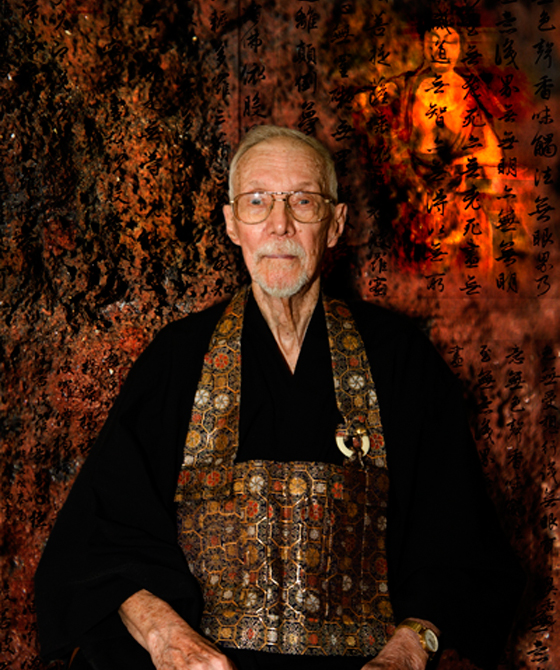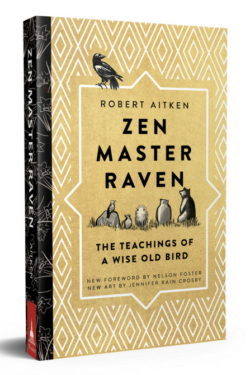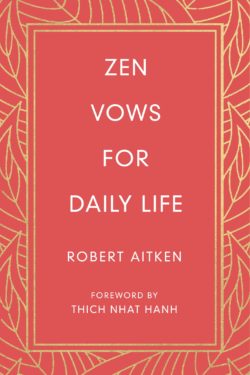Robert Aitken

Robert Aitken Rōshi was a Zen teacher in the Harada-Yasutani lineage. He cofounded the Honolulu Diamond Sangha in 1959 together with his wife, Anne. Aitken received Dharma transmission from Koun Yamada in 1985. He was a social activist advocating for social justice throughout his life, and was one of the original founders of the Buddhist Peace Fellowship. He’s the author of Zen Master Raven and several other books. He died in 2010.
Books, Courses & Podcasts
Zen Master Raven
In the tradition of the great koan collections and the records of ancient masters, Robert Aitken distills a lifetime of teaching down to its essence. Intriguing and deceptively simple, Zen Master Raven is a brilliant encapsulation of Zen in over a hundred koan-like encounters alongside many charming illustrations. Featuring curious beginners like Mallard and Mole and profound teachers like Brown Bear, Moose Roshi, and Zen Master Raven himself, this classic of contemporary Zen and will inspire seekers for generations to come.
Zen Vows for Daily Life
Zen Vows for Daily Life is a collection of gathas, vows in verse form for daily practice, similar to prayers or affirmations for use at home, at work, and in the meditation hall itself. Reciting these poetic vows can help us be fully present in each moment and each activity of our lives. These gathas serve as gentle reminders to return again and again to our highest aspirations, with acceptance, joy, and compassion—for ourselves and all beings. Zen Vows for Daily Life will be a steadfast companion in keeping the reader inspired and committed on their spiritual path.
“Each act in a Buddhist monastery—washing up, putting on clothes, entering the Buddha hall, sitting down for meditation, getting up from meditation—receives its own Dharma poem. Events on pilgrimage—encountering a tree, a river, a bridge, a dignitary, a mendicant—likewise offer entries into truth. My purpose in this book is similar: to show how ordinary occurrences in our modern lay lives are in fact the Buddha’s own teachings—and also to show how we can involve ourselves accordingly in the practice of wisdom and compassion with family and friends, with everyone and everything.”—Robert Aitken, from the Preface
“In [Zen Vows for Daily Life], poetry and meditation always go together. Poetry is comprised of images and music, and images make the practice easy. Robert Aitken Roshi is a poet who deeply appreciates practicing with these gathas. He offers us many beautiful verses, sterling examples of this practice, that we can use to reflect more deeply on what we are doing. I am grateful to Aitken Roshi for offering us this beautiful book.”—from the Foreword by Thich Nhat Hanh


